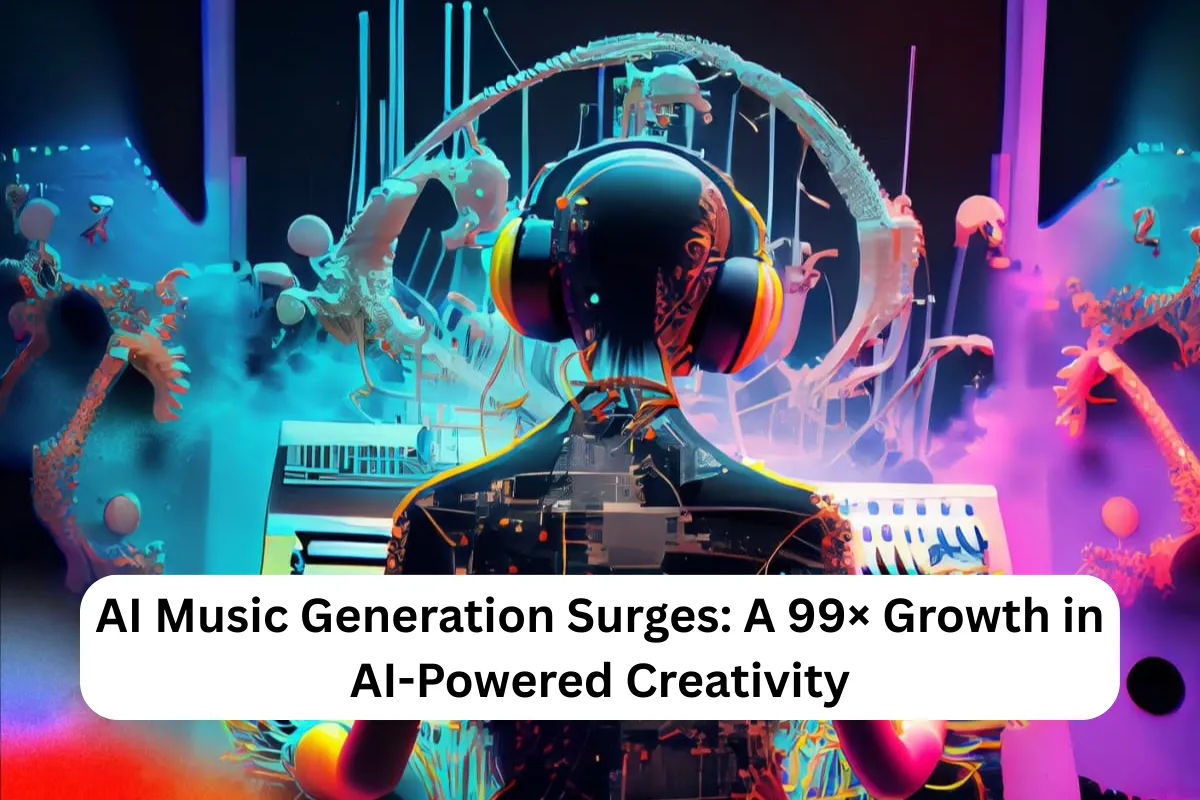Artificial intelligence isn’t just transforming industries—it’s rewriting the future of music. Over the past year, AI music generation has surged in popularity, with tools like Suno and Aiva driving a 99× increase in search interest. This explosive rise signals a new era where machines are not only assisting human creativity but also taking center stage in producing original compositions, soundscapes, and even full-length albums.
As more musicians, producers, and everyday creators experiment with these tools, debates around ownership, artistry, and authenticity are intensifying. But one thing is clear—AI-powered music is here to stay.
Why AI Music Generation Is Exploding
AI music platforms like Suno and Aiva offer intuitive interfaces that let users generate music in seconds. By entering prompts—such as genre, mood, or instruments—anyone can create songs without formal training. This accessibility is fueling global adoption.
The rise is also linked to social media platforms, where creators use AI-generated tracks for TikTok, Instagram Reels, and YouTube videos. Lower costs, limitless creativity, and speed are pushing AI music into the mainstream.
Popular AI Music Generation Tools
Here’s a quick look at leading AI music generation tools fueling this boom:
| Tool | Main Features | Target Audience |
|---|---|---|
| Suno | Text-to-music generation, multi-genre support, lyric creation | Creators, casual users |
| Aiva | Film scores, emotional soundtracks, orchestral arrangements | Professionals, composers |
| Boomy | Instant song creation, distribution to Spotify/Apple Music | Independent artists |
| Soundraw | Customizable royalty-free tracks | Content creators, marketers |
| Amper Music | AI-assisted composition with human editing | Businesses, ad agencies |
Opportunities and Challenges Ahead
While AI music opens up creativity, it also raises critical issues:
- Copyright and Ownership: Who owns AI-generated tracks—the user or the AI company?
- Authenticity Debate: Can AI truly replace the emotional depth of human musicians?
- Industry Shifts: Music labels and streaming platforms are grappling with how to integrate AI tracks.
Still, experts predict AI music will continue to expand, blending human artistry with machine efficiency.
The surge in AI music generation reflects a broader trend—AI is no longer just a tool but a creative partner. With platforms like Suno and Aiva driving explosive growth, the future of music may become more accessible, collaborative, and diverse than ever before. But as this technology evolves, society will need to balance innovation with ethical and artistic considerations.
FAQs on AI Music Generation
1. What is AI music generation?
AI music generation is the use of artificial intelligence to create original songs, soundtracks, or melodies based on user inputs like genre, style, or emotion.
2. How do tools like Suno and Aiva work?
They use machine learning models trained on vast libraries of music to generate unique compositions instantly.
3. Can AI music be copyrighted?
Currently, copyright laws are unclear. In many countries, AI-generated music may not qualify for copyright protection unless human input is significant.
4. Is AI music replacing human musicians?
No, AI is seen as a complement to human creativity, helping with idea generation and faster production rather than replacing musicians entirely.
5. What are the best uses for AI-generated music?
AI music is widely used in social media, gaming, film scoring, marketing, and personal creative projects.
